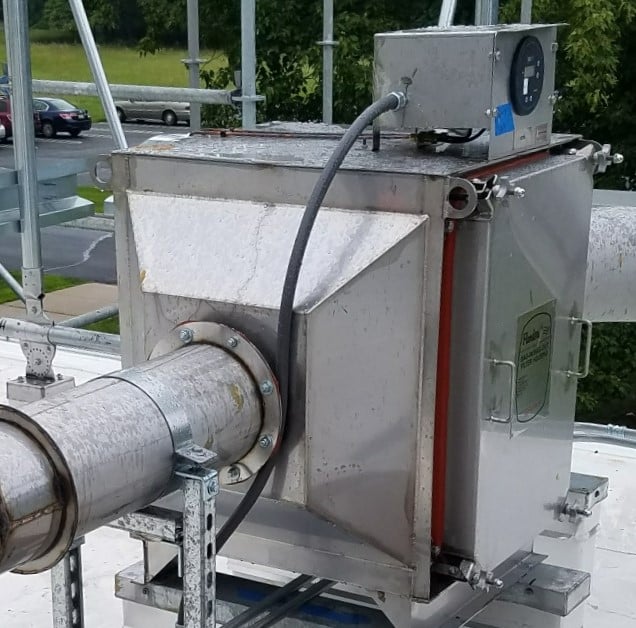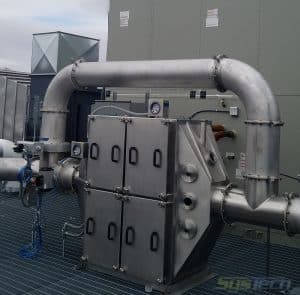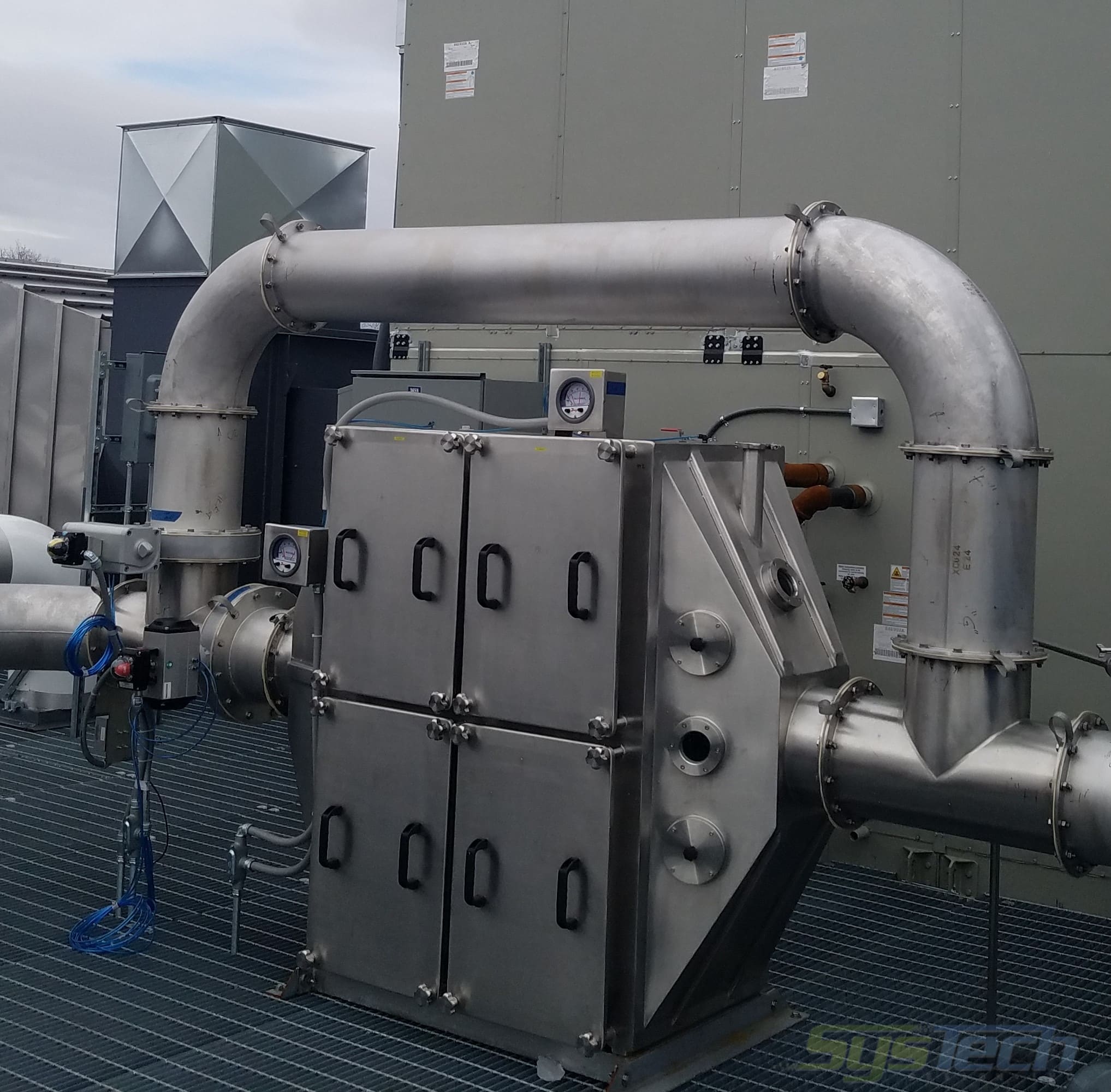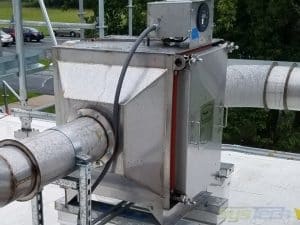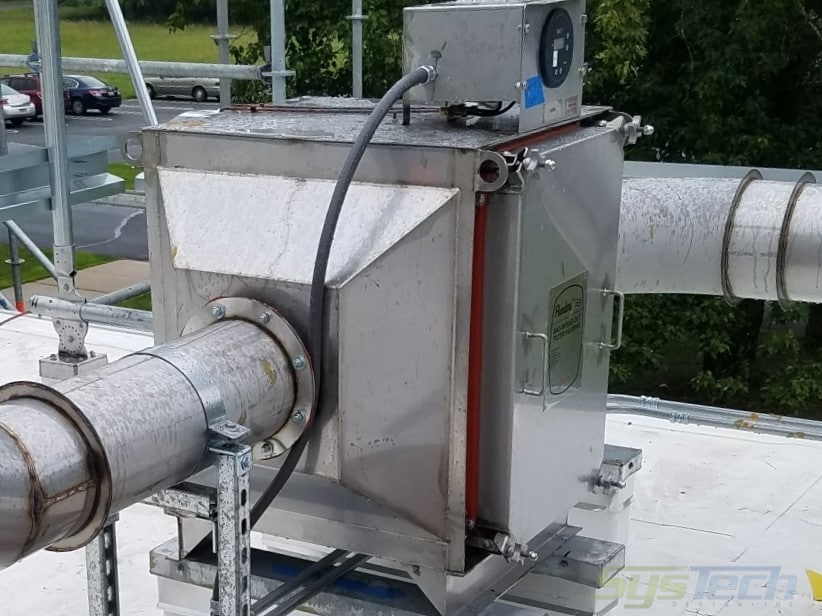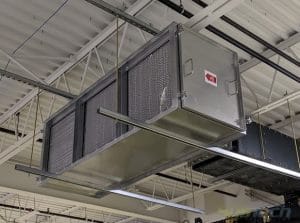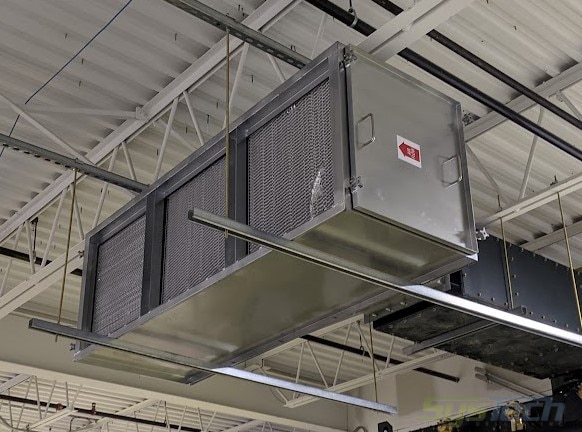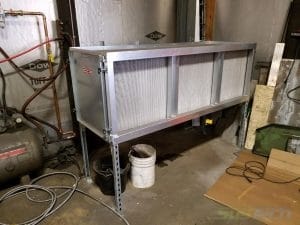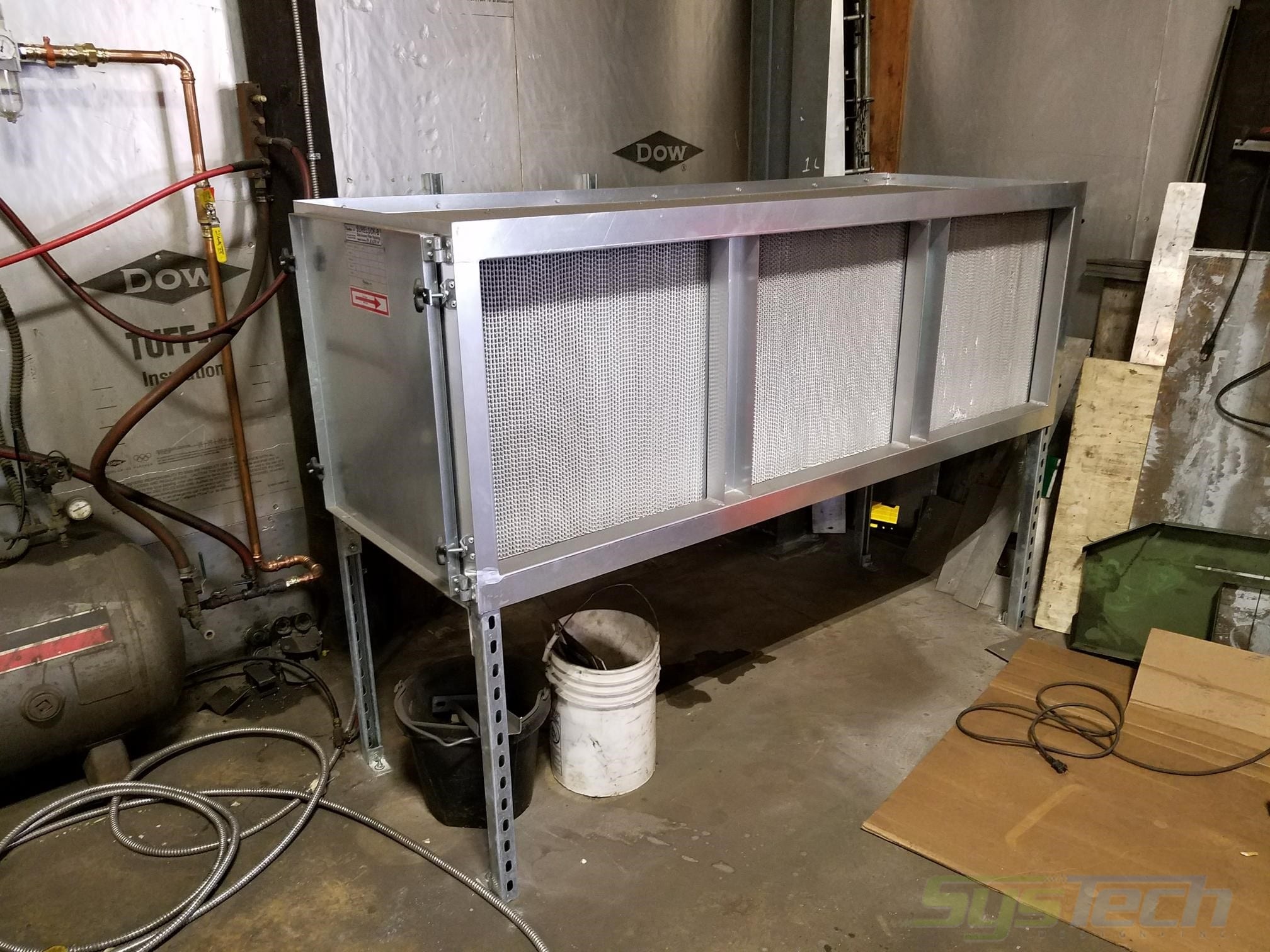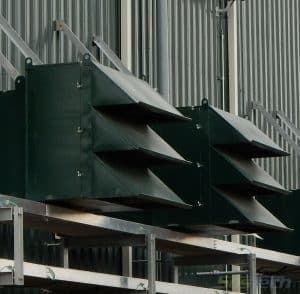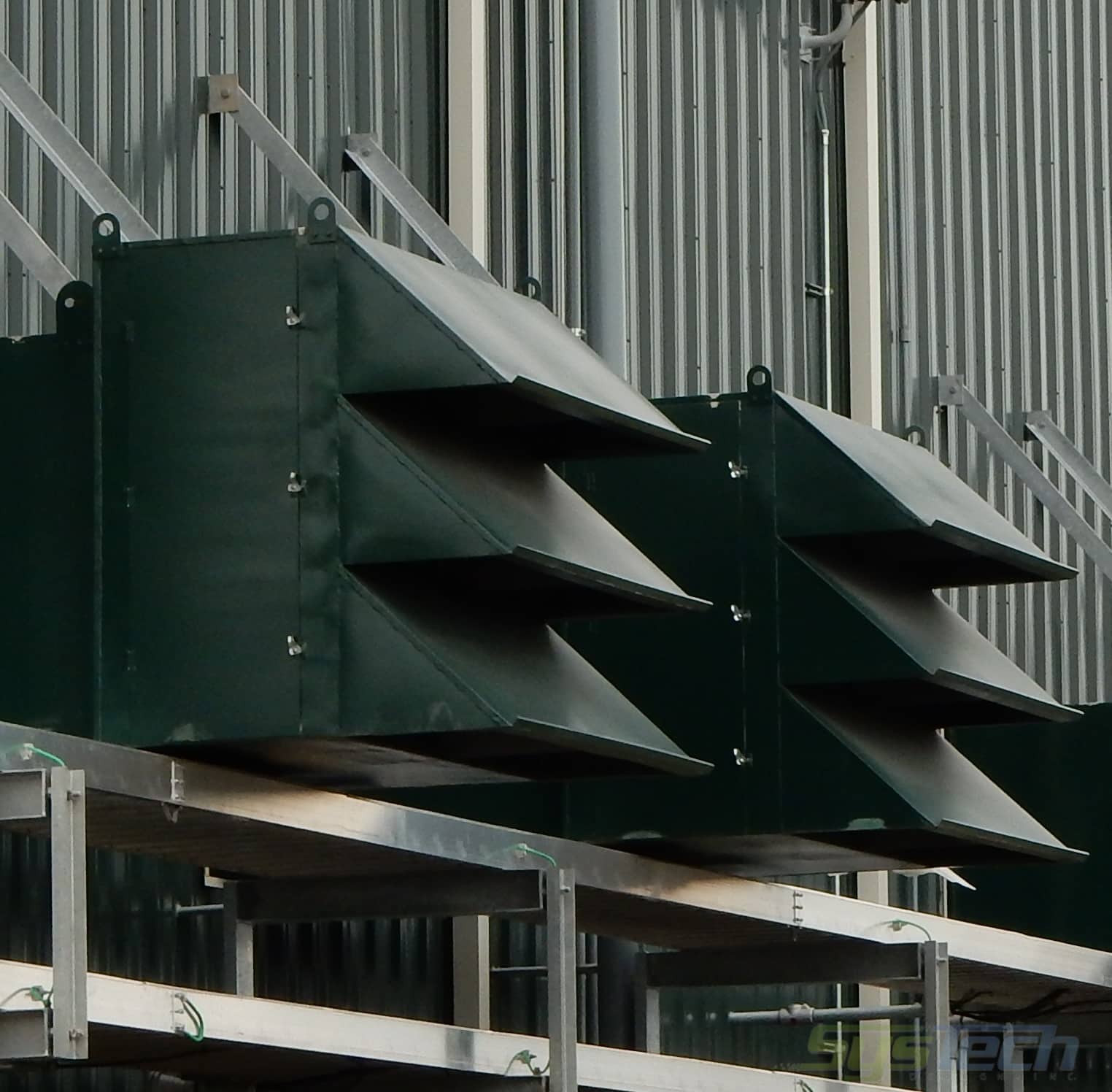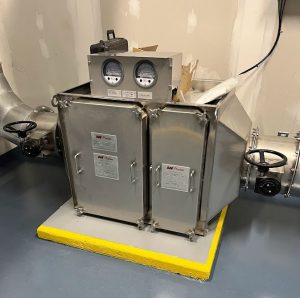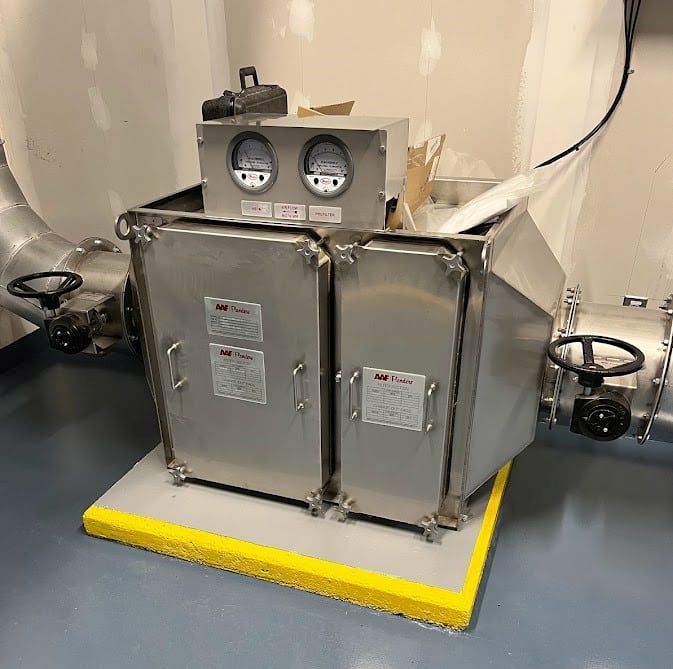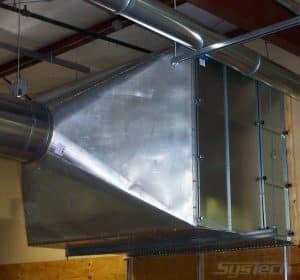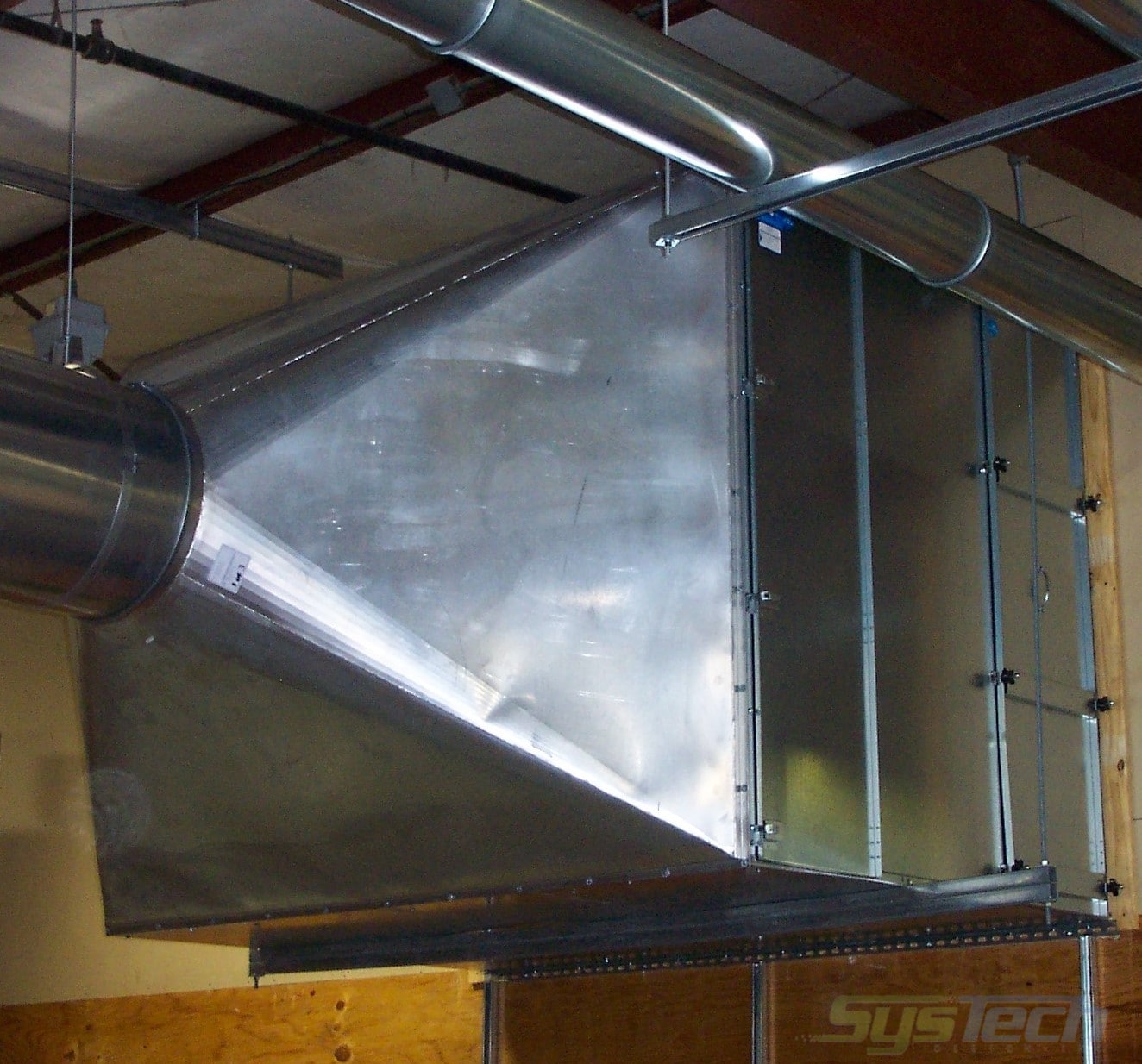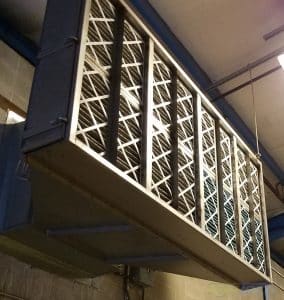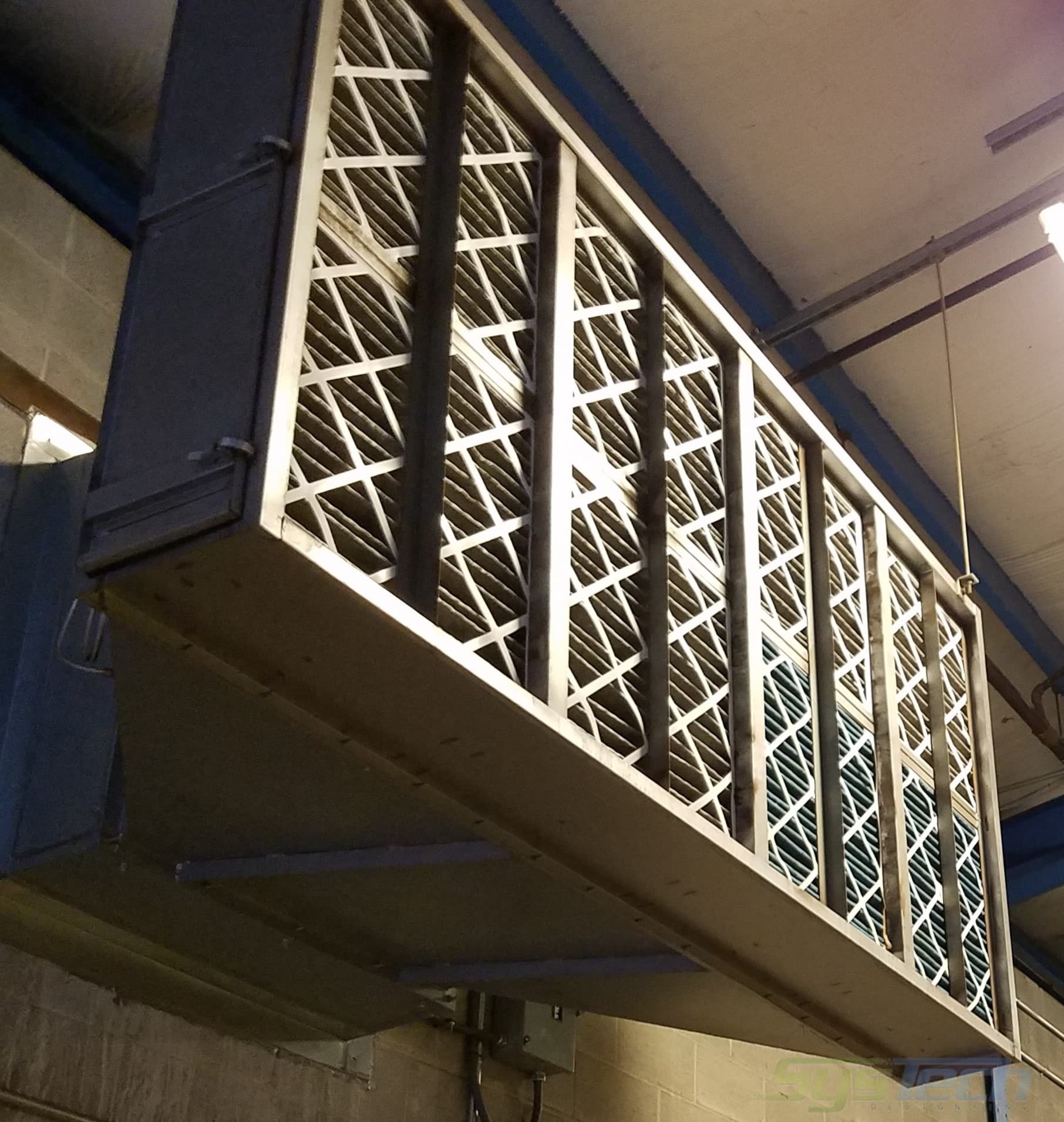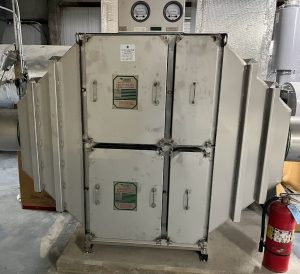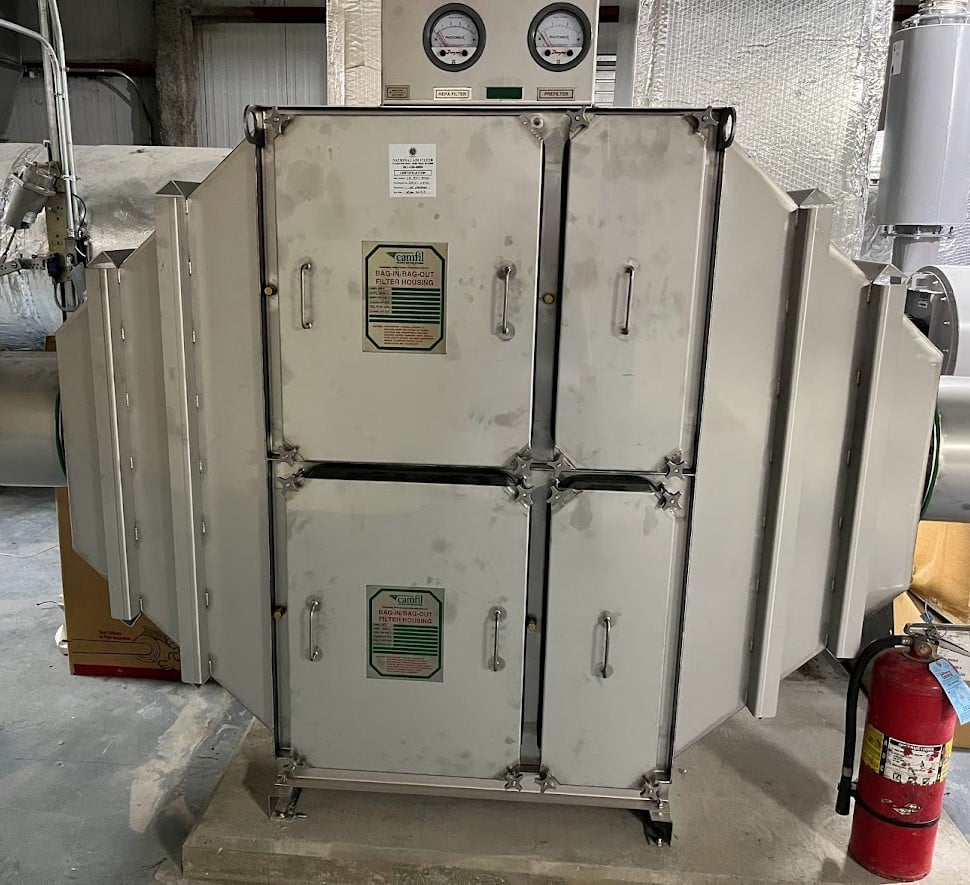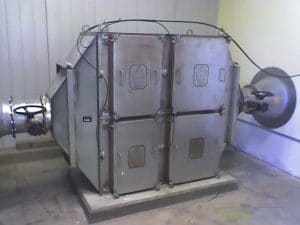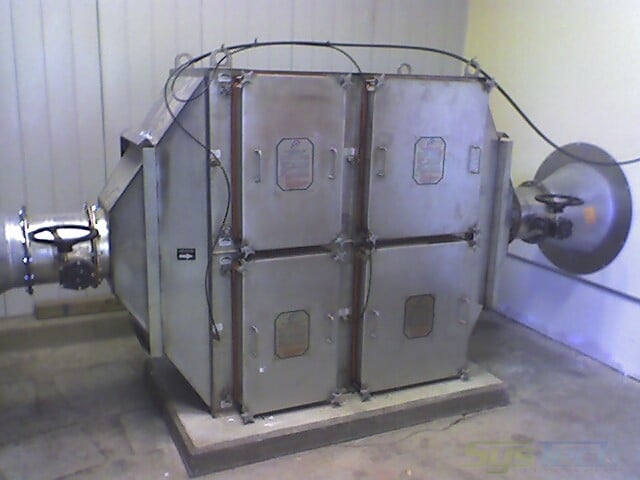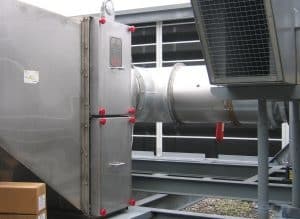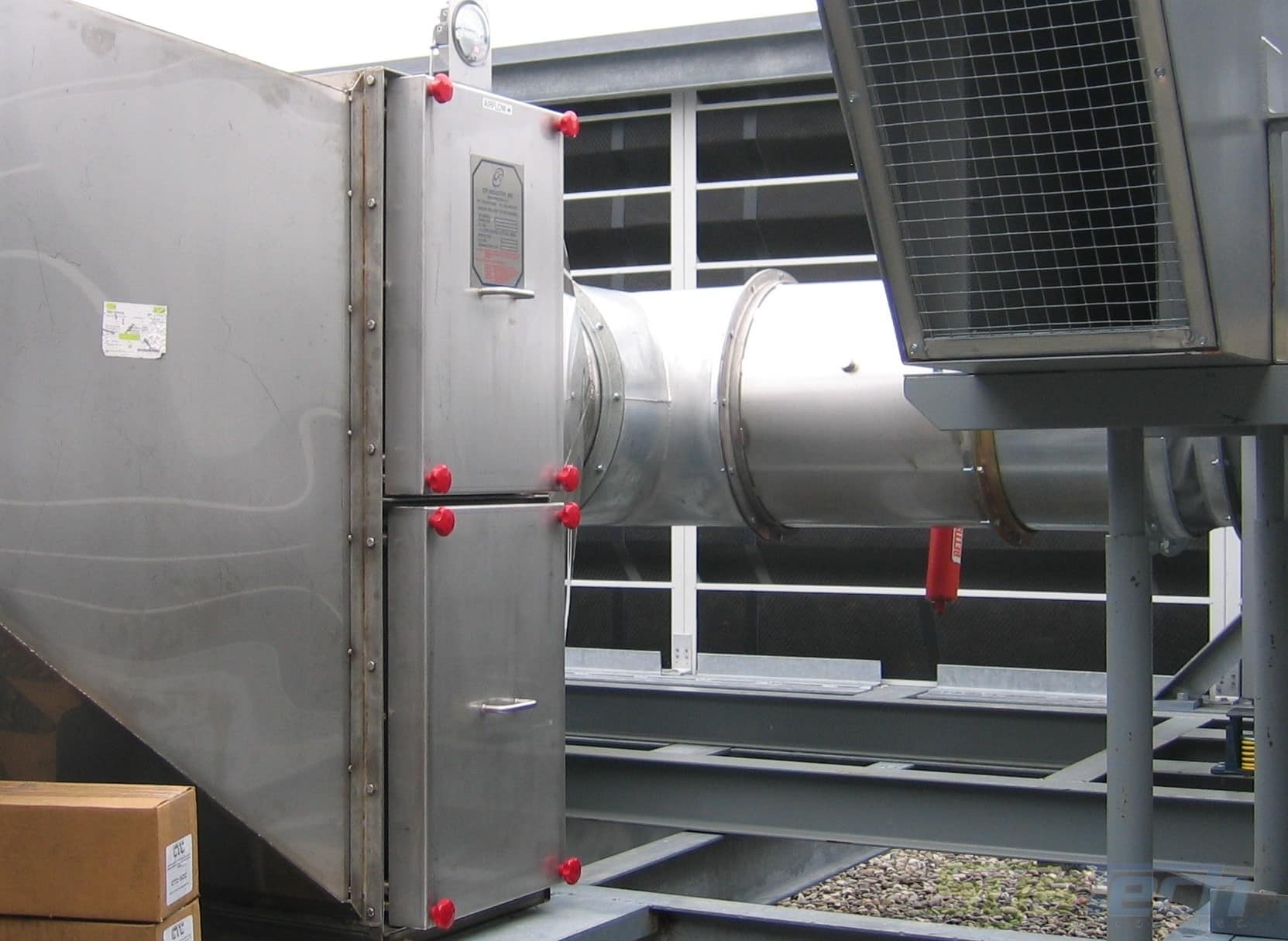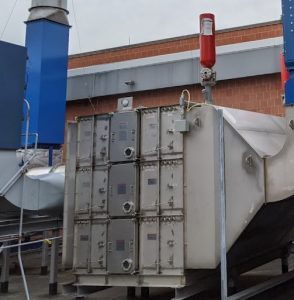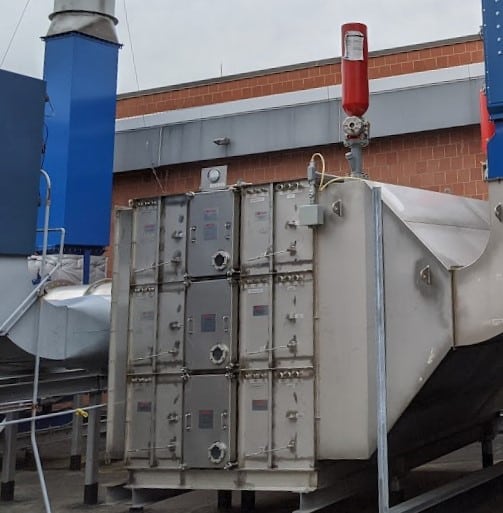Air Filter Housings
SysTech applies industrial air filter housings for a broad range of air filtration needs, from filtering exhaust air from a small blasting booth, as after-filters or return air filters on dust collection systems, or for potent compound filtration at biological testing laboratories.
These air filter assemblies include a housing, transition(s) to a duct system, and air filter elements. The side access air filter housings are multi-stage for progressively higher filtration filters and can be designed for all MERV rated panel filters, bag filters, or HEPA and ULPA filters for the handling of high potency materials or return air systems. Integral fans can be included to create a stand-alone modular air filtration unit.
Air filters can be loaded on end and fixed in place with springs, or through side access doors for filter insertion and extraction or be configured for bag in-bag out (BIBO) features when handling potent or toxic compounds. MERV rated filters are typically used in series with up to four different efficiency rated filters. Air filters are selected on removal efficiency, size of particulate, loading, and temperature.
These filter assemblies are common in pharmaceutical plant applications, research labs, biotech, hospitals, on return air systems, and where handling sub-micron sized particles are part of the process.
Industrial Air Filter Housings
Industrial air filter housing options include:
- Galvanized, aluminum, or stainless steel construction
- Single-Stage Side Access Housing
- Dual-Stage Side Access Housing
- Multi-Stage Carbon Filter Housing – Odor or gaseous contaminant control
- HEPA-Lock Housing
- Multi-Stage Filter Housing – Filters in series with a progressively higher filtration efficiency
- Bag-in Bag-out (BIBO) Housing for potent or toxic compounds
- V-Bank Housing
- Holding Frames
- Flanged or slip fit inlet and outlet
- Duct transitions for inlet or outlet
- Gas-tight shut-off valves
- Pressure gauges
- Indoor or outdoor construction
- Crank or bolt style
- Integral fan
- Unitary base
Industrial Air Filter Types
Air filters come in a variety of designs, including pleated, panel, pocket, rigid box cell, and cartridge. They are selected for an application based on their MERV rating. MERV or Minimum Efficiency Reporting Value is a measurement scale designed in 1987 by the American Society of Heating, Refrigerating, and Air-Conditioning Engineers (ASHRAE) to report the effectiveness of air filters. MERV is defined in ANSI/ASHRAE Standard 52.2, which presents test procedures to categorize air filter expected performance.
The MERV number is a scale from 1 and 16 and represents a worst-case performance of a filter when handling particles in the range of 0.3 to 10 microns. The higher the MERV value, the greater the percentage of particles captured.
MERV 1-4 – Particles greater than 10 microns; examples are pollen, sanding dust, textile fibers. These filters are typical for use in private residences.
MERV 5-8 – Particles from 10 to 3 microns and examples are spores, dander, and found in general commercial applications.
MERV 9-12 – 3 to 1-micron size and are typified by lead dust, some bacteria, and welding fumes and applied in manufacturing and laboratories.
MERV 13-16 – Particles from 1 to 0.3 microns, which would include all bacterial, paint pigments, smoke. These are used in hospitals and surgery suites.
MERV 17-20 – Particles less than 0.3 microns. Some viruses and fine dusts such as carbon.
HEPA and ULPA Filters
High Efficiency Particulate Air filters (HEPA) and Ultra Low Particulate Air filters (ULPA) filters are applied when the highest filtration level is needed.
HEPA filters are designed to remove at least 99.97% of particles whose diameter is equal or less than 0.3 microns. The next air filtration level is the ULPA filter, which is 99.9995% efficient in removing particles 0.12 micron and larger.
These filters are mounted in filter frames or housings and are supplied with gasket or gel seals to ensure the contaminated airflow travels thru the filter element and does not bypass the filter.
Where materials collected are hazardous or identified as potent compounds, the air filter housings are bag in – bag out (BIBO) with collars fabricated into the housings. When inserting or removing the sealed filter elements, sealable bags are placed around the collars to contain captured materials collected on the filter media. The bags prevent the dispersion of collected particulate into the work area when “dirty” filters are replaced. Depending on the filtration level required, bubble-tight isolation dampers may be installed to isolate the housing during filter changeout.
Both filter designs are commonly required in Pharmaceutical, Biotech, Electronics, and Aerospace industries, and hospital surgical suites.

